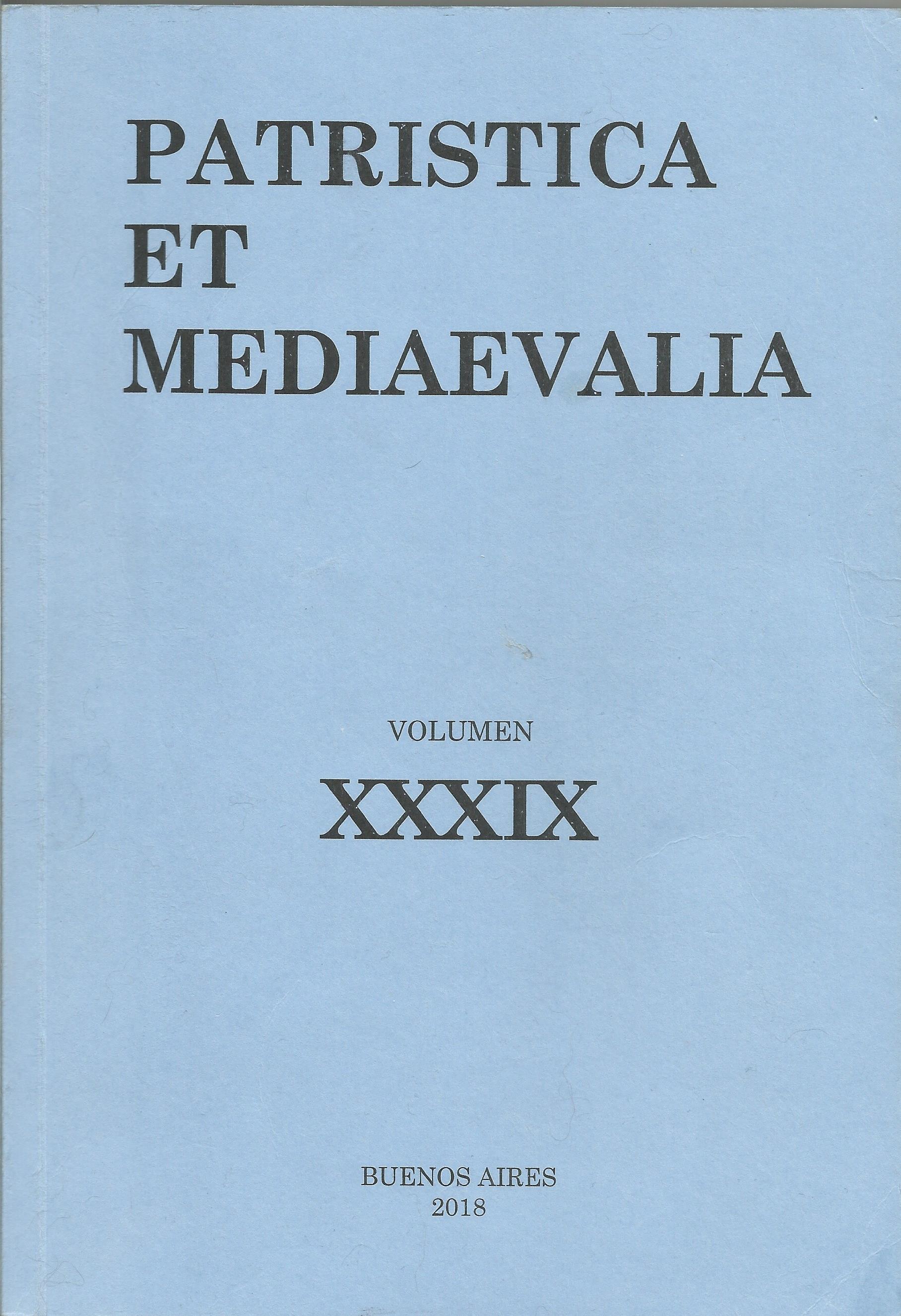The Third Signification of the Universal Names in the 'Logica Ingredientibus: super Porphyrum' of Abelard
Abstract
This article insists on the correct interpretation of the phrase “tertia nominum significatio”, namely “third signification of the names”, in Abelard’s Logica “Ingredientibus”: Super Porphyrium (= LISPor), § 60. To do so in context, an analysis of LlSPor, § 45-60 shows that for Abelard the universal names (nomina universalia) have three significations: 1. The realities (they nominate); 2. The intellections (they constitute); 3. The conceived common forms (at which these intellections, as intentional actions of the soul, are directed).Downloads
References
De Libera, A. (1999). L’Art des généralités. Théories de l’abstraction. Paris: Aubier.
De Rijk, L. L. (1985). Martin M. Tweedale on Abailard Some Criticisms of a Fascinating Venture. Vivarium 23(2), 81-97.
Jolivet, J. (1969). Abélard ou la philosophie dans le langage. París: Seghers.
Jolivet, J. (1981). Abélard en son temps. Paris: Les Belles Lettres.
Jolivet, J. (1987). Aspects de la pensée médiévale: Abélard. Doctrines du langage. Paris: Vrin.
Lafleur, C. & Carrier, J. (2012). Alexandre d’Aphrodise et l’abstraction selon l’Exposé sur les universaux chez Boèce dans son Second commentaire sur l “Isagoge” de Porphyre. Laval théologique et philosophique 68(1), 35-89.
Lafleur, C. & Carrier, J. (2012). Triple signification des noms universels, intellection et abstraction dans la Logica “Ingredientibus”: Super Porphyrium dAbélard. Laval théologique et philosophique 68(1) ,91-128.
Lafleur, C. & Carrier, J. (2012). Abélard et les universaux: édition et traduction du début de la Logica “Ingredientibus”: Super Porphyrium”. Laval théologique et philosophique, 86(1), 129-210.
Lafleur, C (2016). Liste raisonnée des abréviations, sigles et expressions techniques contenus dans les études sur le sujet unique boécien. En Le Sujet “archéotogique” et boécien. Hommage institutional et amical à Alain de Libera. Paris: Vrin; Quebec: Presses de l’Université Laval.
Marenbon, J. (1997). The Philosophy of Peter Abelard. Cambridge: Cambridge University Press.
Marenbon, J. (2004). Life, Milieu and Intellectual Contexts. En J. E, Brower, K. Guilfoy, ed. The Cambridge Companion to Abelard. Cambridge: Cambridge University Press.
Mews, C. (1985). On Dating the Works of Peter Abelard. Archives d’histoire doctrinale et littéraire du Moyen Age, 52, 70-134.
Sorabji, R. (2005). The Philosophy of the Commentators, 200-600 AD. A Sourcebook. Vol. III. Logic and Metaphysics. Ithaca, NY: Cornell University Press.
Vanni-Rovighi, S (1981). Intentionnel et universel chez Abélard. Cahiers de la Revue de théologie et de philosophie, 6: Abélard. Le “Dialogue”. La philasophie de la logique. Actes du Colloque de Neuchâtel, 16-17 novembre 1979, Genéve, Lausanne, Neuchátel.
1. The authors who publish in this magazine accept the following conditions:
-
They retain the copyright and grant to the magazine the right of the first publication, with the work registered under the Attribution-ShareAlike 4.0 International License that allows third parties to use what is published as long as they mention the authorship of the work and the first publication in this magazine.
-
They can make other independent and additional contractual agreements for the non-exclusive distribution of the version of the article published in this magazine (eg. include it in an institutional repository or publish it in a book) provided that they clearly indicate that the work was first published in this journal.
-
They are allowed and recommended to publish their work on the Internet (for example on institutional or personal pages).
2. AutoArchive Conditions. Authors are allowed and encouraged to distribute post-print electronic versions of their manuscripts because it promotes their circulation, a possible increase of quotation and a major reach among the Academic community. Color RoMEO: blue.













